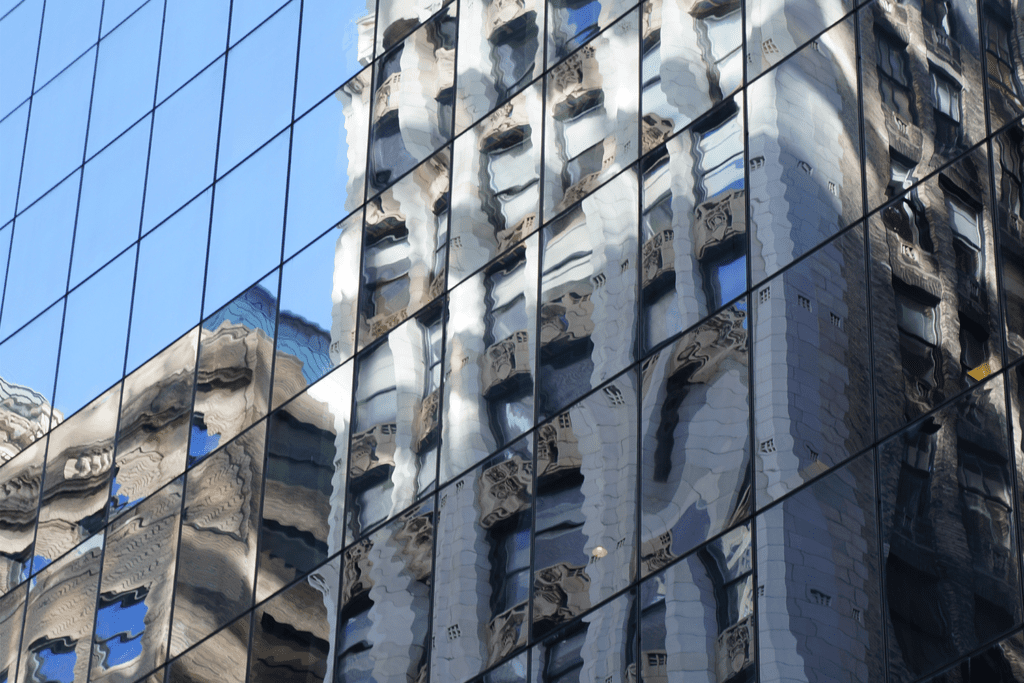Specialist masterclasses from Buro Happold
With over 40 years of experience providing consultancy across all aspects of building design and engineering, we’re proud to offer a range of expert masterclasses delivered by some of the world’s leading designers and engineers.
Discussing a range of important topics outside the usual project remit, our masterclasses inform audiences through engaging project examples, deep industry experience and a technical Q&A session.
In the last year, we have delivered 15 masterclasses, both virtually and in-person, to over 900 clients and collaborators across our industry. The client feedback has been excellent, with an average rating of 9.4 out of 10.
All of our masterclasses are highly focused and delivered in 60 minutes or less.
The masterclass sessions I attended about facade typologies, the choreography of facade engineering and historic facades were fantastic. The speakers delivered the information in an interesting and informative way.
Claire Bezzine, QPML

You can find out more about each of our masterclass sessions below. If you or your company would like to attend one of our expert masterclasses, please contact us via bh.events@burohappold.com
Available Masterclasses
Facade Typologies
- Haruna Watanabe
MSc Building Engineer, Architecture UE, ARB Architect, MSFE
Haruna presents an analysis of the most typical facade types in relation to performance and buildability. What are the knock-on effects of choosing the wrong facade typology in the early design stages and how this decision can limits architect’s opportunities.
The Choreography of Facade Engineering
- Panos Panagiotis
DipEng, MSc, ARB, TCG
Technical aspects of facades – an introduction.
Choreography is defined as the practice of designing the sequence of steps and movements. This session is focused on how this is practised in the facade engineering discipline.
Heritage Facades
- Ana Araujo
MSc, Eng (Pt), APAEWE, MRICS
Ana will discuss the different extents and scopes that a Heritage Facade project can assume.
The masterclass will include the importance of understanding types of building listings and impacts on planning conversations when it is estimated that there are around 600,000 listed buildings in the UK. She will also explore investigation and design strategies to reduce planning, programme and cost risk at early stages of a project.
Facades and Ventilation
- Ben Burgess
Bsc, DipIOA, MIOA, MIHEEM
Key Considerations for Acoustic Comfort.
Ben will introduce basic facade principles, the Physics of acoustics and the context of natural ventilation with proposed typical strategies for facade design to incorporate natural ventilation.
The Golden Thread
- Shaun Farrell
OND & HNC in building studies
Sharing our experience in addressing the digital needs expressed in the ‘Building a Safer Future’ report.
Engineering Conservation
- Matteo Francini
MEng, CEng, MICE, APAEWE, Conservation Accredited Engineer - Julian McFarland
BEng, CEng, MIStructE, MSc, DIC
Matteo, a Conservation Accredited Engineer and Julian, Director of Structures will talk you through the definitions and principles of conservation of the built heritage from a facade and structure perspective: historic materials, typical defects and repair options in line with internationally recognised methods and best practice.
Fire and Facade: Existing Buildings
- Jamie Lee McQuillan
MSc, BSc, AIFireE, MSFPE - Peter Goff
MEng, CEng, MICE, MSFE
This masterclass provides guidance on Buro Happold’s 3-phase approach to the assessment of the facades on existing buildings – Information gathering, assessment, and remedial works.
It will also provide clarity on the responsibilities of parties under the Regulatory Reform (Fire Safety) Order (RRO) and when Building Regulations are applicable in relation to existing buildings.
Lighting and Facades Part I: Finding the balance for joint design
- Carolina Florian
MSc, CEng, MSLL, MCIBSE - Chrysanthi Anastasiou
DipEng, MSc, CEng (TEE-TCG), MCIBSE
Lighting considerations for the enhancement of facades and architecture.
This masterclass touches upon the synergy of facade and lighting design, focusing on artificial lighting. Eight basic principles of lighting design on a building facade are analysed. The relative ‘’rules of thumb’’ that can be incorporated at the early design stage are outlined.
Fire and Facade: New Build
- Jamie Lee McQuillan
MSc, BSc, AIFireE, MSFPE - Peter Goff
MEng, CEng, MICE, MSFE
Considering fire within the design of facade systems.
In this masterclass, Peter and Jamie will cover fire safety design, the application of common facade types and the interaction with the primary structure.
Data Drive Outcomes: Space
- Tom Hopton
BSc, FCIBSE, CEng, ABCIA
Our experts in human behaviour analytics, people movement, smart building technology and data visualisation will be sharing the art of what’s possible alongside best practice.
As one of the very first to connect data and analytics with building performance, health, wellbeing and productivity, space quality and utilization, Buro Happold invites you to join a series of masterclasses exploring how data is driving better, safer, more people centric and energy efficient buildings.
Lighting and Facades Part II: Daylight Impact on the built environment
- Myrto Skreta-Krikou
RIBA Chartered, ARB, MSc, MEng - Chrysanthi Anastasiou
DipEng, MSc, CEng (TEE-TCG), MCIBSE
Design with Nature: Principles of daylighting and solar glare in facade design
This Masterclass focuses on daylighting design for building facades, sharing she technical terminology, aims and considerations of daylighting. The topic of Solar Glare is analysed and relevant assessment methodologies are showcased through case studies. The new UK Standard covering design recommendations around solar glare are discussed and mitigation measures are presented.
Embodied Carbon and Facades Masterclass
- Teni Ladipo
PhD MSc BSc CEng MCIBSE
A detailed understanding of the impact facades can have on the operational and embodied carbon of a building is crucial in this process.
This masterclass focuses on some key principles to be considered and coordinated when designing facades with sustainability as a key design driver. It also introduces some important aspects of the CWCT’s guide for calculating the embodied carbon of facades which was co-authored by the Buro Happold Facade Engineering team member Teni Ladipo.
Data Centric Resilience
- Bruce Braes
MA MEng CPP PSP CRISC CSyP CMIRM MIET - David Green
MSc BSc - Shaun Farrell
OND, HNC
The importance of data driven resilience planning in delivering sustainable business advantage.
Never before have our existing built assets come under such pressure. The impact on our workplaces, our hospitality & leisure facilities, the demands on our healthcare premises, and the safety & resilience of our learning establishments is impacting how we view our property assets.
Introduction to Embodied Carbon
- Dr Natasha Watson
PhD, MEng, ICE
Join Buro Happold in learning what embodied carbon is, how it is currently being measured, and most importantly, how it can be minimised.
We will go through a project life cycle and discuss what decisions have the largest impact on the embodied carbon of your projects through the use of project case studies and our sensitivity studies. Embodied carbon minimisation needs to sit alongside cost, quality, and programme to ensure that your project successfully provides the spaces and purpose it needs to, but does it in a lower-carbon way.
Introduction to Timber
- Matthew Caldwell
MEng CEng MIStructE
- Matthew Duckett
MEng CEng MICE
- Jonathan Roynon
MEng MIStructe Ceng Mst (Cantab)
The urgency of the climate emergency is acting as a catalyst for us all to re-examine the way we design and operate buildings.
In this masterclass we will introduce the use of timber in building structures, including its nature, advantages and limitations. No prior knowledge of timber as a material is required.
Unlocking opportunities from the foundations up
- Rachel Monteith
BSc CEng MICE - Nigel Pickering
BSc MSc DIC CEng FICE
The built environment contributes around 40% of the UK’s total carbon footprint and the energy used to create the materials used during construction.
Join Buro Happold’s Geotechnic experts as they present case studies and best practice in reusing existing foundations to unlock redevelopment opportunities and take a step closer to achieving net zero.
Glass visual distortion and digital prototypes
- Tommaso Crippa
MSc Ing. CEng MCIBSE - Claudio Marini
MSc Ing
Aesthetic expectations for visual flatness of glass have been a long term point of debate between Clients, contractors and specifiers.
Please join Buro Happold in learning about the main considerations about glass aesthetic perception, the processes available to help manage risk of glass visual distortion and a new tool that can be introduced earlier in the design/procurement process to support the decision-making and early discussion of aesthetic risks.
Martyn’s Law Briefing
- Ally Isom-Leonard
PgDip, AIFSM, MSyl, F.ISRM, RISC
What to expect from the Terrorism (Protection of Premises) ‘Martyn’s Law’ draft bill Briefing.
Please join Buro Happold as we unpack why Martyn’s Law is needed, who it will affect, what those affected will be required to do, and how Buro Happold can help. Areas covered within the briefing will include the current scope of the draft bill, the two-tier system and the proposed requirements of each tier, event-specific terms, expected governance and sanctions, and sectors currently out of scope.
Introduction to Passivhaus
- Simon Wright
BSc (Hons) IEng - Catherine McCarthy
BEng(Tech) MEng
Passivhaus is an internationally recognised building standard that aims to create highly energy-efficient and comfortable buildings.
Please join Buro Happold in learning what Passivhaus is and how the solution helps to deliver net-zero-ready new and existing buildings, optimised for a decarbonised grid and augmented for health and wellbeing. This includes references to recent project work at Art Works, The British Library at Boston Spa, and HES Bonnyrigg.





